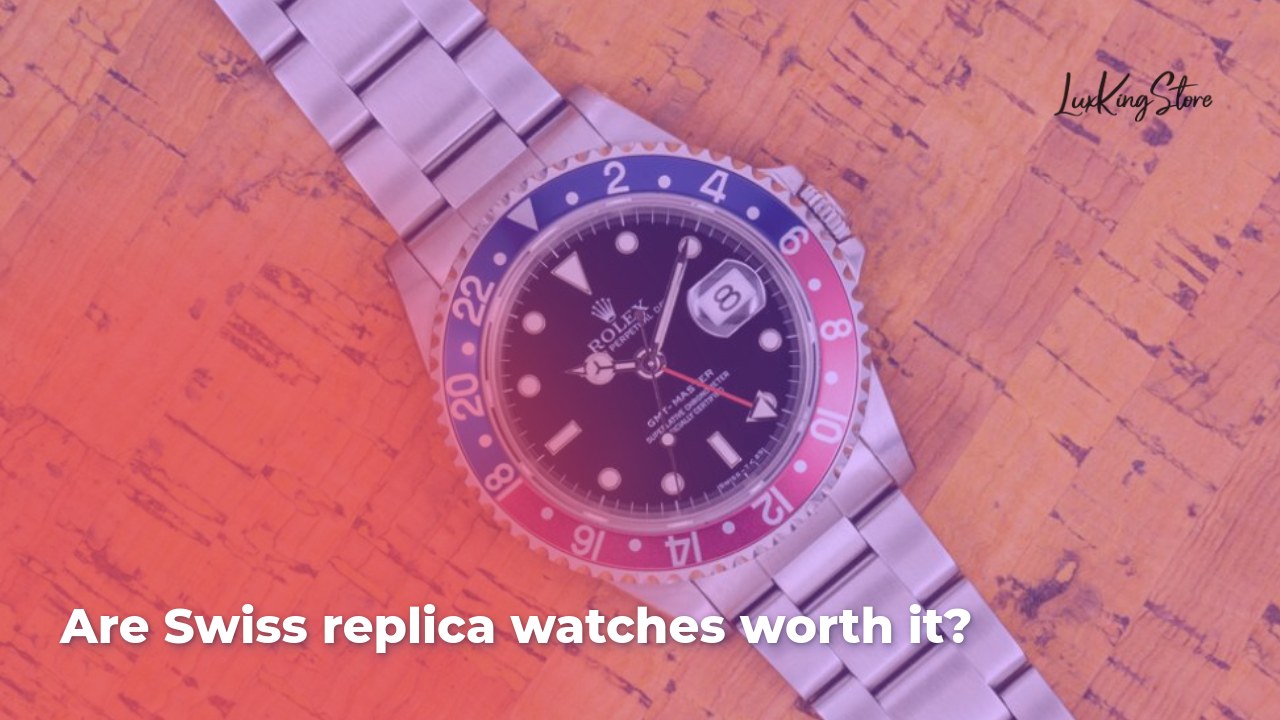Are Swiss replica watches worth it?
Are Swiss Replica Watches Worth It?
In an age where luxury watches are often seen as an embodiment of wealth and style, the allure of Swiss replica watches has gained enormous traction among consumers. These replicas promise the aesthetic appeal of prestigious brands without the hefty price tag that often comes with authentic timepieces. However, this begs the question: are they truly worth it? Are they a feasible alternative for those who admire luxury watches but lack the funds for the real deal? This article dives deep into the world of Swiss replica watches, exploring their craftsmanship, quality, materials, and the opinions of consumers to determine whether they are a wise investment or a misguided choice.
Understanding Swiss Replica Watches
Swiss replica watches aim to replicate the appearance and craftsmanship of genuine Swiss luxury watches while often being produced without authorization from the original brands. They capitalize on the “Swiss” label as a marketing strategy, presenting them as high-quality alternatives, even though many are assembled in countries with lower labor costs, like China or India. While some replicas may appear visually indistinguishable from authentic pieces, they frequently fall short in craftsmanship and quality.
The phenomenon of Swiss replicas raises discussions about quality, value, and the ethical implications of purchasing such watches. As we explore this intricate market, it’s essential to note how their aesthetic value, price point, and craftsmanship compare to genuine Swiss luxury watches.
What Are Swiss Replica Watches?
Swiss replica watches represent timepieces designed to emulate genuine Swiss luxury watches in appearance and style. However, their production process often diverges significantly from the meticulous methods used for authentic models. To understand the appeal of these replicas, it’s crucial to break down their characteristics:
- Craftsmanship: While some high-end replicas, often labeled as “super clones,” boast improved craftsmanship compared to standard replicas, the overarching quality rarely matches that of authentic watches. Authentic Swiss watches undergo stringent quality control and are crafted with superior materials.
- Movements: Many authentic Swiss watches feature intricate mechanical movements that are renowned for their reliability and longevity, whereas fake counterparts often utilize simpler quartz movements. There are exceptions where high-end replicas may use Swiss-made movements, but other internal components usually do not match the complexity or durability of genuine models.
- Price: The most significant attraction to Swiss replica watches is their price point. A high-quality replica might cost anywhere from $50 to several hundred dollars, while genuine Swiss watches typically start in the thousands. This affordability opens the door to many consumers who dream of luxury without the financial burden.
- Design and Features: Most Swiss replicas are designed to mirror the look of their genuine counterparts closely. They may include features such as similar dials, cases, and straps to reflect the aesthetics of luxury brands.
In summary, while Swiss replica watches can provide a luxury look at a lower price, they often lack the craftsmanship and authenticity associated with genuine Swiss timepieces, making them a questionable long-term investment.
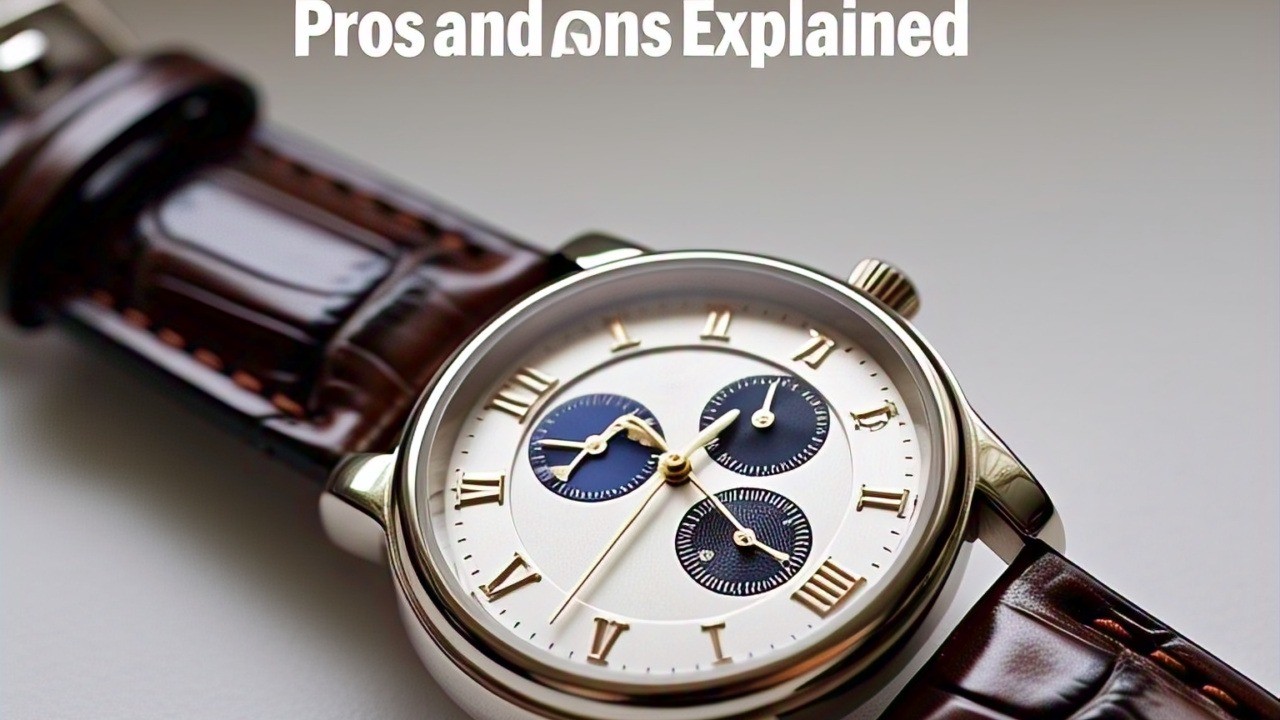
How Are Swiss Replica Watches Made?
The production process of Swiss replica watches is multifaceted and intricate, despite often being less refined than the creation of authentic luxury watches. Here’s a breakdown of the common steps involved in making these replicas:
- Sourcing Materials: Manufacturers generally start by sourcing materials that can mimic the luxurious metals used in authentic watches, such as stainless steel or gold plating. However, these materials often differ significantly in quality and durability.
- Design Replication: The design phase involves meticulous planning to ensure that the replica closely mirrors the physical characteristics of the genuine watch. This includes creating accurate designs and components like dials, bezels, and cases.
- Mechanical Movements: While some high-tier replicas utilize Swiss movements, many are powered by similar yet inferior quartz mechanisms. The internal assembly usually takes place in countries with lower labor costs, which translates into cost savings but often compromises precision.
- Final Assembly: The final assembly is where many discrepancies arise. In genuine Swiss watches, each component is assembled by skilled artisans who ensure quality control and functionality. In contrast, replica watches often lack such stringent processes, leading to variations in quality.
- Quality Control: The level of quality control for Swiss replicas varies widely. Authentic Swiss brands engage in rigorous testing to ensure reliability and accuracy qualities that are frequently absent in replicas due to the lack of attention to detail.
Despite the visual similarity, the manufacturing process of Swiss replica watches typically embodies a stark contrast to that of genuine timepieces. The absence of authenticity and durability is especially evident when the watches are put to the test over time.
Evaluating Quality of Swiss Replica Watches
Quality is a critical factor when assessing Swiss replica watches. As consumers, understanding the quality spectrum of replicas versus genuine models is essential to making informed decisions about which timepieces to invest in, if any.
How Do Swiss Replica Watches Compare to Genuine Models?
The comparison between Swiss replica watches and genuine models is often starkly contrasted across various parameters:
| **Feature** | **Swiss Replica Watches** | **Genuine Swiss Watches** |
|---|---|---|
| **Craftsmanship** | Often lacks precision | Meticulously crafted |
| **Materials** | Inferior, less durable metals | High-quality, durable materials |
| **Movement Quality** | Primarily quartz in many cases | Renowned mechanical movements |
| **Resale Value** | Minimal to none | Often appreciates over time |
| **Warranty** | Limited or absent | Usually includes manufacturer warranty |
- Craftsmanship: While some replicas may offer decent aesthetic quality, they generally lack the intricate details and craftsmanship found in authentic Swiss timepieces. Genuine watches are assembled by skilled artisans who uphold brand standards.
- Materials Used: Authentic Swiss watches utilize materials such as high-grade stainless steel, gold, and sapphire crystal. On the contrary, many replicas use cheaper metals and plastics, which impact durability and overall appeal.
- Investment and Resale Value: Investing in genuine watches can yield financial rewards over time, as well-known brands often appreciate in value. In contrast, Swiss replicas do not hold their worth, resulting in quick depreciation.
- Warranty and Support: Authentic Swiss watches typically come with warranties that provide consumer protection. Unfortunately, many Swiss replica manufacturers offer limited or no warranty, leaving customers vulnerable to defects and quality issues.
While aesthetic similarities may draw consumers to Swiss replica watches, the disparity in quality becomes evident upon closer inspection and use. In the long term, investing in genuine timepieces yields higher satisfaction and overall value.
What Materials Are Used in Swiss Replica Watches?
The materials used in Swiss replica watches contribute significantly to their quality and overall durability. Here’s a closer look at commonly utilized materials:
- 316L Stainless Steel: A popular choice for higher-quality replicas, 316L stainless steel offers good corrosion resistance and durability, closely mimicking the material used in genuine luxury watches.
- Gold Plating: Many replicas feature gold plating, which is less expensive than solid gold. However, the durability and longevity of gold plating can vary considerably based on thickness and quality.
- Synthetic Sapphire Crystal: While authentic watches utilize genuine sapphire crystal for scratch resistance, many replicas may use lower-quality glass, resulting in decreased longevity and susceptibility to scratches.
- Plastic and Lower-Grade Metals: In cheaper replicas, manufacturers may resort to using inferior materials that do not withstand wear and tear, impacting the overall look and feel of the watch.
| **Material** | **Replicas** | **Authentic Swiss Watches** |
|---|---|---|
| **Stainless Steel** | 316L or lower-grade | High-grade, corrosion-resistant |
| **Gold Type** | Plating or imitation | Solid gold or real plating |
| **Crystal** | Plastic or mineral glass | Genuine sapphire crystal |
The materials used often dictate not only the appearance of Swiss replicas but also their durability and user experience. Investors must consider these factors when contemplating the purchase of a replica watch.
Are Swiss Replica Watches Reliable and Durable?
Reliability and durability are quintessential when examining Swiss replica watches. Many consumers seek a timepiece that can withstand daily wear and extend its lifespan. Here’s a deeper dive into these aspects:
- Reliability of Movement: The reliability of Swiss replica watches can vary greatly. While some high-end replicas boast mechanical movements that mimic authentic Swiss watches, the majority utilize quartz mechanics. This results in questions regarding whether they can endure the test of time.
- Durability of Materials: Cheaper materials often lead to heightened risks of wear and tear. For instance, plastic watch faces and low-grade metals compromise the sturdiness of the watch, leaving consumers with a subpar experience over time.
- Consumer Experiences: Many buyers report mixed experiences regarding the durability of their Swiss replica watches. Customers frequently lament issues like loose movements, malfunctioning features, or crystal scratching easily, further undermining the reliability of these timepieces.
- Warranty and Support: As mentioned earlier, the lack of warranties or manufacturer support for many Swiss replicas increases the risk for consumers. Without a warranty, buyers have little recourse for repairs or replacements in case of malfunction.
Ultimately, while some Swiss replica watches can provide reasonable reliability for short-term use, they typically do not match the durability or dependability of genuine Swiss timepieces.
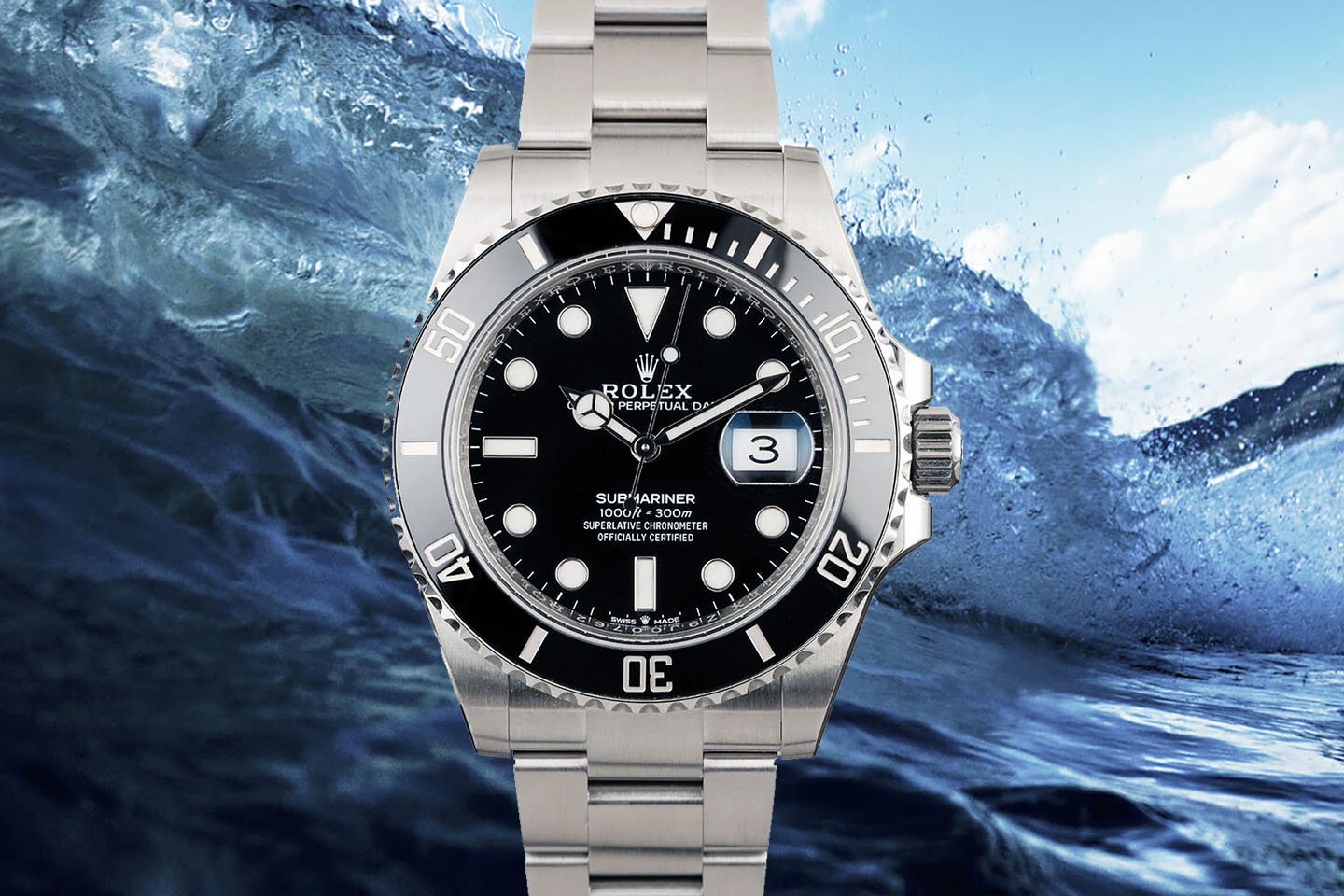
Pricing and Value
Pricing is a significant consideration when investigating Swiss replica watches. The price point not only determines accessibility but also influences consumer perception of value. Here’s a closer look at how prices and values stack up:
How Much Do Swiss Replica Watches Cost?
Swiss replica watches offer a wide range of pricing, often dependent on quality and craftsmanship. Here’s a breakdown of what to expect:
- Low-End Replicas: These watches can cost as little as $50 to $100. While they may provide a decent aesthetic, the quality and longevity typically suffer due to inferior materials.
- Mid-Range Replicas: Often priced between $200 and $500, these replicas may incorporate better materials and aesthetics, resembling more closer genuine watches. However, many still fall short of true luxury quality.
- High-End Super Clones: These replicas, which may closely mimic high-tier luxury watches, can range from $600 to $1,000. Made with better materials and sometimes using Swiss movements, they target consumers who want an authentic appearance at a lower cost.
| **Price Tier** | **Price Range** | **Quality** |
|---|---|---|
| **Low-End** | $50 – $100 | Inferior materials |
| **Mid-Range** | $200 – $500 | Improved aesthetics |
| **High-End** | $600 – $1,000 | Close to genuine quality |
While Swiss replicas allow for the visual appeal of luxury watches without the steep costs, it’s crucial to recognize that these products rarely retain or appreciate in value, unlike their authentic counterparts.
Are Swiss Replica Watches a Good Investment?
When evaluating investment potential, Swiss replica watches generally do not stack up favorably against genuine Swiss luxury watches. Here’s why:
- Depreciation: Replicas typically lose value quickly and do not hold their worth. Unlike genuine luxury watches, which can appreciate over time, there’s minimal demand for Swiss replicas in the resale market.
- Quality Assurance: Limited warranties and the often unreliable mechanisms mean these watches are unlikely to perform well over time, further reducing their investment potential.
- Market Demand: While there is a market for replicas, primarily driven by consumers seeking affordable luxuries, they are not usually viewed as desirable collectibles compared to authentic timepieces. The prestige of owning a luxury piece cannot be replicated.
- Opportunity Cost: Investing in high-quality replicas often involves a trade-off. The funds allocated towards a replica could yield better returns if invested in an authentic luxury watch, even if it requires saving up a bit longer.
To summarize, while Swiss replicas might appeal to some consumers’ aesthetic desires, they lack the intrinsic value and longevity associated with genuine Swiss timepieces, making them a questionable investment choice.
What Factors Affect the Value of Swiss Replica Watches?
The value of Swiss replica watches is influenced by various factors, including:
- Materials and Craftsmanship: The quality of materials used can significantly impact a replica’s perceived value. Watches constructed from low-grade materials lack longevity and aesthetic appeal compared to those made with high-quality components.
- Brand Perception: The reputation of the brand is crucial. Well-known luxury brands carry inherent value that replicas struggle to emulate. The lack of brand prestige can result in diminished consumer interest.
- Market Demand: The demand for affordable luxury alternatives can bolster the value of certain replicas. However, if demand wanes, so too does their perceived worth.
- Legal and Ethical Considerations: Purchasing replicas can raise ethical concerns regarding intellectual property infringement, impacting consumer attitudes towards these products and their value perception.
| **Factors Influencing Value** | **Details** |
|---|---|
| **Materials** | Quality of components drives value |
| **Brand Reputation** | Known brands vs. nameless replicas |
| **Market Demand** | High demand can enhance perceived value |
| **Legal Concerns** | Ethical considerations can affect sales |
Ultimately, the value of Swiss replica watches hinges on both individual perceptions and broader market dynamics, creating a complex landscape for potential buyers.
Consumer Perspectives
Understanding consumer opinions surrounding Swiss replica watches is crucial in determining their worth. By examining customer reviews and sentiments, we can gain valuable insights into whether these timepieces are a suitable investment or merely a passing interest.
What Do Customers Say About Swiss Replica Watches?
Customer reviews on Swiss replica watches reflect a range of experiences, often highlighting both positive elements and significant drawbacks:
- Aesthetic Appeal: Many customers express satisfaction with the visual appearance of their replicas, noting that they closely resemble luxury models. This aesthetic match allows wearers a semblance of sophistication without the financial hit.
- Quality Complaints: On the flip side, several users report issues with mechanical reliability, such as inaccurate movements or non-functional features shortly after purchase. These complaints emphasize potential drawbacks regarding durability.
- Customer Service: Reports indicate mixed experiences with customer support. Some users encounter challenges in obtaining refunds or exchanges for defective products. This lack of solid service can lead to dissatisfaction and overall negative perceptions of the brand.
- Overall Value: While certain consumers appreciate the affordability of Swiss replicas, there remains a general consensus that the long-term durability and reliability often fall short of expectations.
In essence, while buyers may be enticed by the visual allure of Swiss replica watches, many find that issues related to quality and customer support detract from their overall value, leading them to reconsider their purchases.
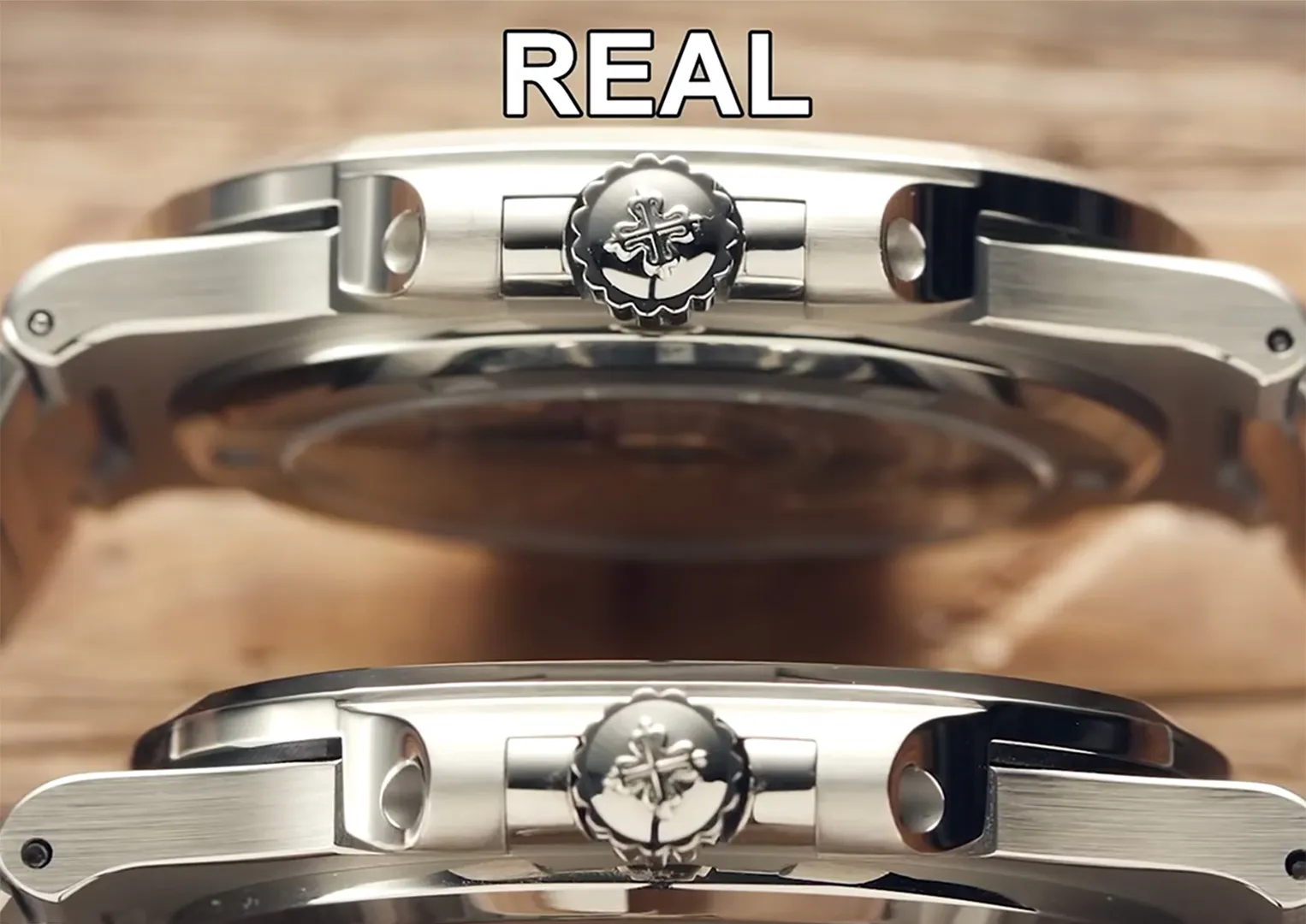
Are There Any Warranty or Return Policies for Swiss Replica Watches?
The warranty and return policies surrounding Swiss replica watches can heavily influence consumer satisfaction. Here’s what you need to know:
- Limited Warranties: Many replica brands offer minimal or no warranty, which raises concerns for consumers. In the event of a product failure, customers often have no recourse for repair or replacement.
- Challenging Returns: Customers frequently report challenges in reaching out to manufacturers for returns or exchanges, especially in cases of faulty products. This lack of support can deter future purchases.
- Variability Among Brands: The warranty policies for Swiss replica watches can vary widely from one manufacturer to another. Some high-end replicas may come with limited warranties, while others may not provide any assurance at all.
- Consumer Experiences: Negative customer experiences concerning returns and warranties often lead to distrust among potential buyers, affecting the overall reputation of the brand and its products.
Ultimately, consumers must exercise caution when purchasing Swiss replica watches, given the discrepancies in warranty and return policies that can lead to significant dissatisfaction.
How Do Buyers Perceive the Value of Swiss Replica Watches?
Buyer perceptions of Swiss replica watches can fluctuate based on various factors, including individual values and market dynamics. Here’s an overview of consumer attitudes:
- Affordability vs. Authenticity: Many buyers initially view replicas as budget-friendly alternatives to genuine luxury watches, balancing aesthetics with financial limitations. However, the allure of owning a luxury watch often clashes with the desire for authenticity.
- Quality Concerns: As consumers become more educated about the differences between genuine watches and replicas, concerns arise about durability and reliability. This realization can dampen enthusiasm for replicas, leading some buyers to rethink their choices.
- Ethical Considerations: Awareness of the legal implications surrounding counterfeit products can influence buyer opinions. Prospective customers may feel conflicted about purchasing replicas due to ethical concerns regarding intellectual property infringement.
- Exploration Opportunities: Some consumers appreciate Swiss replicas as entry points into the luxury watch market, allowing them to explore high-end designs without committing to original pieces. This can foster a transition toward authentic watch ownership over time.
In conclusion, while many buyers appreciate the affordability of Swiss replicas, evolving attitudes toward quality, ethics, and authenticity will ultimately shape consumer perceptions.
Alternatives to Swiss Replica Watches
Given the mixed reviews of Swiss replica watches, exploring alternative options becomes essential for those desiring quality timepieces without the associated ethical concerns.
What Are the Best Alternatives to Swiss Replica Watches?
Individuals searching for alternatives may consider a variety of reputable brands that provide excellent craftsmanship and aesthetics comparable to luxury models. Here are some notable options:
- Ciga Design: Known for its unique designs and affordability, Ciga Design offers timepieces that mimic luxury aesthetics without infringing on trademarks. Models typically start around $279 USD.
- Tudor: As a subsidiary of Rolex, Tudor delivers high-quality watches with vintage-inspired designs. With prices ranging from $3,900 to $4,100, they present an excellent alternative for those seeking authenticity and craftsmanship.
- Seiko Prospex: Providing exceptional value under $1,000, Seiko’s Prospex line offers reliable dive watches known for their build quality and functionality, making them ideal alternatives to higher-priced Swiss models.
| **Brand** | **Price Range** | **Key Features** |
|---|---|---|
| **Ciga Design** | Starting at $279 USD | Unique designs, affordable |
| **Tudor** | $3,900 – $4,100 | High-quality, vintage aesthetics |
| **Seiko Prospex** | Below $1,000 | Robust build, impressive water resistance |
Exploring these brands allows consumers to enjoy premium aesthetics and quality without the ethical implications associated with purchasing Swiss replicas. Ultimately, evaluating individual needs will guide potential buyers towards the right choice.
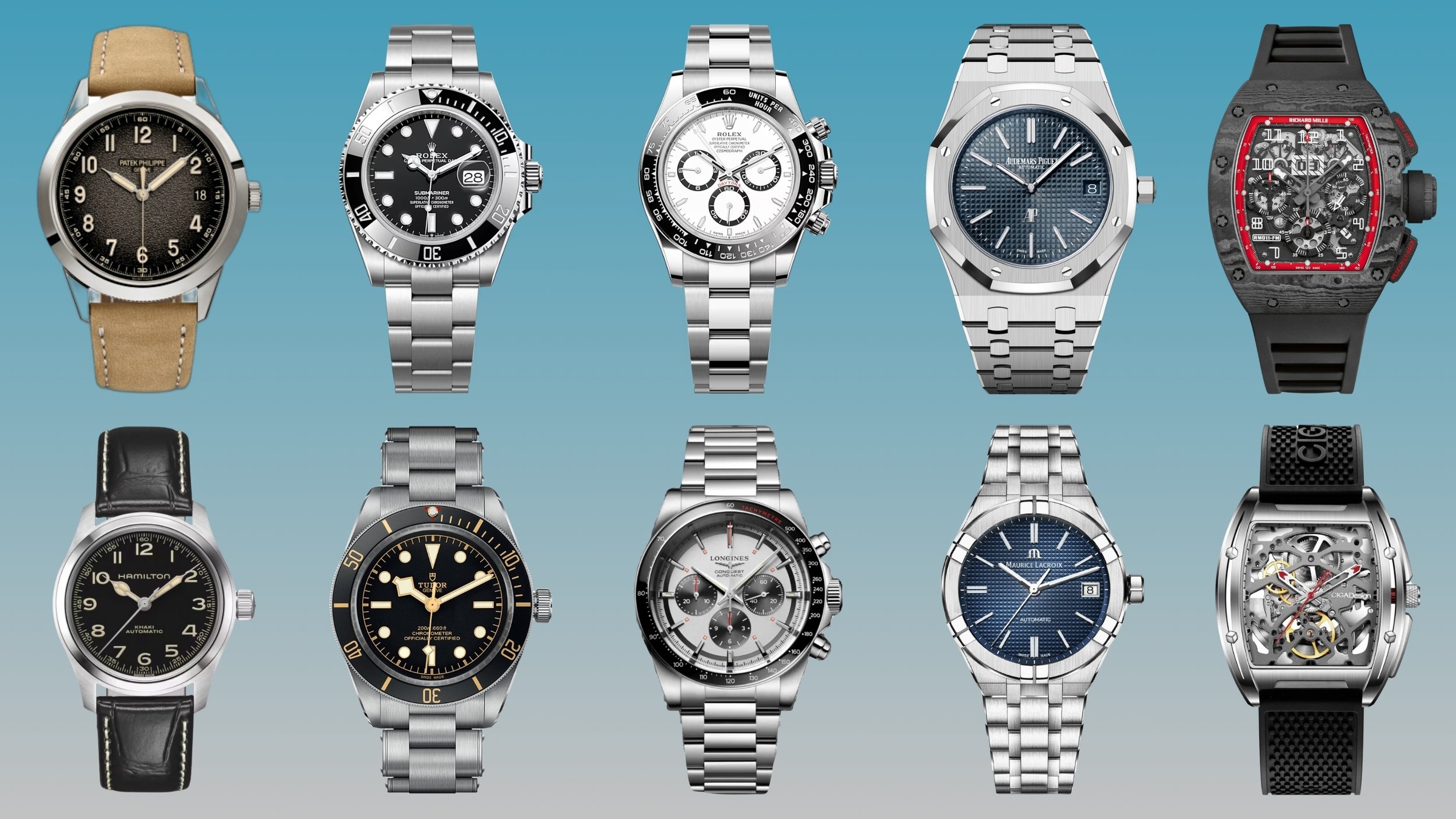
How Do Other Replica Watches Compare to Swiss Models?
In analyzing other replica variants, it’s vital to compare quality and pricing against Swiss models. Here’s how:
- Japanese Replica Watches: These are often made with superior materials and craftsmanship compared to Swiss options, yet remain affordable. Many consumers view them as viable alternatives, particularly for certain design aesthetics.
- Homage Watches: While not technically replicas, homage watches celebrate the design elements of luxury watches without infringement on trademarks. They offer a comparable look, often priced significantly lower than genuine brands.
- Quality Assessment: When comparing different replica watches, customers should evaluate factors like movement quality, material durability, and perceived brand value, all of which play a role in satisfaction.
- Consumer Decisions: The choice between Swiss replicas and other alternatives often leads back to individual priorities, as some consumers focus on aesthetics while others prioritize quality and brand perception.
By weighing these factors, buyers can make informed choices and find alternatives that satisfy their preferences while avoiding the pitfalls of Swiss replicas.
Are There Any Other Brands That Offer Quality Replica Watches?
Besides the previously mentioned brands, several other companies produce high-quality replica watches worth exploring.
- Tissot: This renowned Swiss brand combines quality with affordability, providing models that reflect luxury designs without a significant investment.
- Hamilton: Known for its American heritage, Hamilton offers stylish options at accessible prices. These watches can serve as perfect alternatives for those desiring American luxury aesthetics.
- Maurice Lacroix: Often compared to high-end brands like Audemars Piguet, Maurice Lacroix delivers excellent quality and craftsmanship without the exorbitant price tag.
When evaluating these brands, it’s essential to consider the balance between aesthetic appeal and quality:
| **Brand** | **Notable Characteristics** |
|---|---|
| **Tissot** | Quality at affordable prices |
| **Hamilton** | Stylish options reflecting American luxury |
| **Maurice Lacroix** | Excellent craftsmanship, good value |
Choosing trustworthy alternatives can allow consumers to enjoy desirable aesthetics without the ethical concerns surrounding replicas, ensuring a satisfying watch ownership experience.
Conclusion on Worthiness
The allure of Swiss replica watches is undeniable for consumers drawn to the aesthetics of luxury timepieces available at a fraction of their true cost. However, as we’ve explored throughout this article, many deficiencies exist, particularly in durability, quality, and overall value retention. While some higher-end replicas may closely mimic attractive designs, they ultimately lack the authenticity, craftsmanship, and brand heritage that define genuine Swiss watches.
When considering an investment in timepieces, potential buyers are encouraged to weigh their desire for luxury aesthetics against the tangible benefits provided by authentic models. Additionally, exploring reputable alternatives can lead to rewarding experiences without the ethical and practical downfalls of replicas. Ultimately, understanding the complex landscape of Swiss replica watches empowers consumers to make informed decisions tailored to their values and preferences.
Are Swiss Replica Watches Worth the Investment Compared to Originals?
In considering whether Swiss replicas are worth investing in as opposed to genuine models, it’s clear that many factors come into play. While the price point of a replica may seem appealing, the long-term financial viability and satisfaction derived from owning a genuine luxury watch often overshadow initial affordability. When deciding whether to pursue a Swiss replica or an authentic timepiece, potential buyers should thoroughly evaluate their personal values, desired aesthetics, and the emotional satisfaction associated with possessing a genuine luxury piece.
How Do Emotional and Status Factors Influence the Value Perception of Swiss Replica Watches?
Emotional and status factors heavily impact consumers’ value perceptions of Swiss replica watches. For many, owning a luxury timepiece fulfills a desire for prestige and accomplishment that cannot be fully replicated by replicas. While some individuals may appreciate the aesthetic similarities of the replicas, the lack of authenticity often undermines the emotional satisfaction tied to truly owning a luxury watch. As such, the notion of status becomes intrinsically linked to the perception of value, shaping buying choices within the luxury watch market. The prestige associated with authentic brands elevates their perceived value and desirability, which replicas struggle to emulate fully.
FAQs
- Are Swiss replica watches legal to buy?
- While purchasing replica watches isn’t illegal, manufacturing them often infringes on intellectual property rights, leading to legal concerns.
- How can I identify a good quality replica?
- Quality replicas will have precise detailing, use good materials, and ideally incorporate Swiss movements for reliability.
- Do Swiss replicas hold any resale value?
- Typically, Swiss replicas have minimal to no resale value and depreciate quickly once purchased.
- Can a replica watch look exactly like the original?
- High-quality replicas can closely mimic the appearance of original watches, but subtle differences in weight, material, and movement will likely be present.
- Are there affordable genuine watches that compare to replicas?
- Brands like Seiko and Hamilton offer affordable options that provide quality craftsmanship without the ethical implications associated with replicas.
Key Takeaways
- Swiss replica watches offer a luxury aesthetic at a lower cost but lack authenticity and longevity.
- Production processes for replicas differ, often compromising quality and reliability.
- Ethical implications and legal concerns arise from purchasing counterfeit products.
- Alternatives exist within reputable brands that offer quality watches without replicating designs.
- Emotional satisfaction and perceived status significantly influence consumer perceptions of value in luxury watches.
Final Thoughts
In exploring the world of Swiss replica watches, it’s evident that while the appeal of achieving a luxurious look at a fraction of the cost is enticing, the drawbacks ranging from quality inconsistencies to ethical concerns cannot be overlooked. High-quality alternatives from reputable brands offer exciting prospects for consumers seeking both aesthetics and ethical purchasing. Ultimately, investing in a genuine Swiss watch or high-quality homage can yield far more satisfaction and value in the long run than any Swiss replica can promise.
Suggested Keywords
- Swiss replica watches review
- How to identify good replicas
- Best affordable luxury watches
- Counterfeit watch legality
- Difference between replicas and originals
By comprehensively addressing each aspect of Swiss replica watches, this article provides readers with a detailed understanding of their worthiness in comparison to authentic luxury timepieces.
You Can See More Product: luxkingstore.com

